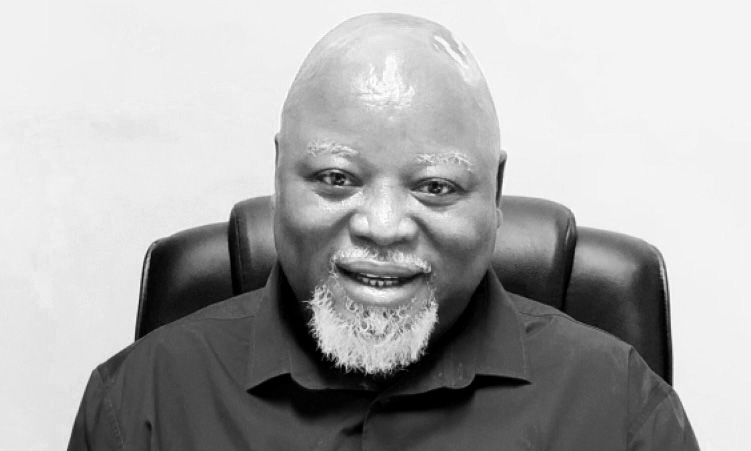Elections are about mandates – the authority voters give to an elected leader or party to govern.
President-elect Netumbo Nandi-Ndaitwah’s victory is historic and significant but the numbers tell a more complex story.
And the president-elect must pay attention!
Nandi-Ndaitwah secured 57.8% of the vote, while her party, Swapo, received 53%.
This means almost half of Namibia’s voters chose opposition parties, signalling a clear message: That the country is politically divided and that many Namibians desire change.
Nandi-Ndaitwah’s win highlights a shift in Namibia’s political landscape.
SIGNS OF THE TIMES
In 2014, the late Hage Geingob (may he rest in peace) won a landslide victory, securing 83% of the vote.
Swapo also dominated the National Assembly elections that year with an overwhelming majority.
But then things started to fall apart.
By 2019, Geingob’s support had dropped sharply – to 56% – while Swapo’s share fell below 70%.
Voters were clearly frustrated, punishing the party for corruption scandals, economic struggles and a lack of accountability.
While Nandi-Ndaitwah received 57.8% of the vote, support for her party has fallen below 55% for the first time since independence.
This means that 42% of voters in the presidential race and 47% of voters in the National Assembly cast their ballots for opposition parties.
This is a reflection of dissatisfaction and a demand for change.
HARD LESSONS
Hage Geingob’s leadership offers an important lesson.
His 2014 landslide gave him an overwhelming mandate but he misread it. Instead of addressing corruption and economic challenges head-on, his administration became mired in scandals like Fishrot, which eroded public trust.
The late president’s interpretation of the mandate as a blank cheque for Swapo cost him dearly in 2019 when his support dropped dramatically.
Nandi-Ndaitwah cannot afford to make the same mistake.
Her divided mandate is a clear warning: Namibians are not entirely sold on Swapo’s vision and are looking for better governance, transparency and accountability.
However, a divided mandate can be a platform for meaningful leadership.
KEY STEPS
Nandi-Ndaitwah has an opportunity to redefine Swapo’s approach and rebuild trust with Namibians.
Here are key steps she can take to lead effectively in this new political reality.
- • Firstly, Nandi-Ndaitwah must recognise that nearly half of Namibians voted for change.
- • Ignoring this will only deepen divisions.
- • The president-elect must find ways to work across party lines and include opposition voices in shaping the country’s future.
- • Secondly, Namibia needs a leader who can bridge the gap between political parties and different social groups.
- • Her administration must prioritise unity by governing for all Namibians, not just Swapo supporters.
- • Thirdly, corruption scandals have been a key reason for Swapo’s declining support.
Nandi-Ndaitwah needs to send a strong message by directly addressing these issues.
Among others, restoring trust in government means showing that no one is above the law.
- • Fourthly, with high unemployment and widespread poverty, Namibians are desperate for solutions.
Her government must focus on job creation, supporting small businesses and addressing inequality.
‘WITH EYES WIDE OPEN’
The success of her Presidency will depend on how well she tackles these pressing challenges.
Election results are more than just statistics; they carry a powerful message.
By giving Swapo 53% and Nandi-Ndaitwah 57.8%, voters are signalling that they are not fully confident in the ruling party’s ability to govern in everyone’s best interest.
Almost half of the parliamentary votes went to opposition forces, showing that Namibians are looking for alternatives.
This reflects increasing frustration with Swapo’s performance over the years.
The economic challenges, corruption scandals and perceived arrogance of some leaders have alienated many voters.
Young people in particular are turning to opposition parties, demanding a government that reflects their aspirations and hopes.
Geingob’s Presidency serves as a cautionary tale.
His overwhelming mandate in 2014 was wasted on governance that failed to address the people’s needs.
By 2019, the voters had spoken, cutting his support significantly.
Nandi-Ndaitwah must learn from this history.
AN OPPORTUNITY
The president-elect’s mandate is not a weakness; it is an opportunity to prove that Swapo can lead effectively in a changing Namibia.
By embracing inclusivity, accountability and a focus on the people’s needs, she can transform this moment into a turning point for the country.
Netumbo Nandi-Ndaitwah’s Presidency begins in a politically fragmented Namibia.
The realities demand a different style of leadership – one that listens, compromises and puts the people first.
The mandate she received is a message from the voters.
How she interprets and acts on it will determine not just her legacy, but the future of Namibia.
Will she rise to the occasion or repeat the mistakes of the past?
The choice is hers; the country is watching.
- • Ndumba J Kamwanyah is a public policy expert, focusing on the interplay of social welfare policy, democracy and development.
Stay informed with The Namibian – your source for credible journalism. Get in-depth reporting and opinions for
only N$85 a month. Invest in journalism, invest in democracy –
Subscribe Now!






